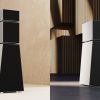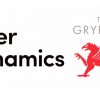Article by Randall Roberts from In Sheep’s Clothing Hi-Fi
The Tel Aviv cultural hub Beit Romano (Romano House) is a stunning compound that houses restaurants, a jazz kissa, a record store, a non-profit, and a vast courtyard used for outdoor parties. The pop-up that helped build this remarkable space is Teder.FM, an online radio station that broadcasts the Beit Romano DJ sets, listening events, and casual after-dinner mixes to anyone with an internet connection.
Founded in 2010 by Itai Drai, Zach Bar, Shlomi Zidan and Dror Sher – the team with whom we’re collaborating to open In Sheep’s Clothing NYC in the new Port Sa’id NYC space – Teder.FM remains the support beam upon which the quartet built Beit Romano. They were inspired by kindred spirits including dublab, East Village Radio, and NTS, each of which harnessed a love of music to create communities.

We caught up with Teder.FM co-founder Itai Drai via video call to talk about the project and the ways in which it helped build a cultural center that’s become a must-see hangout for tourists and a home away from home for locals.
Follow In Sheep’s Clothing NYC and Port Sa’id NYC on social media for the latest news on our collaboration.
In Sheep’s Clothing: How did you first fall in love with music?
Itai Drai: When I was 15, I got really into scratching and playing with records. I was mostly inspired by hip hop mixtapes, sampled based beats – DJ Shadow, the Ninja Tune sound, Madlib – the life changing documentary “Scratch” and just hearing my older sister’s techno DJ friends talking about records and raves… So in a way I fell in love with vinyl and DJ culture and only then started going more deeply into music.
I grew up in Jerusalem and the alternative music scene was very small; we didn’t really have a hiphop scene or a reggae scene or a techno scene. It was just one mixed small scene of all the music freaks in the city. So although hip hop was, and still is, my main love, I was raised in a musical environment where it’s less about genre or scene and more about just loving music and looking for stuff that is “real” and authentic.
When I moved to Tel Aviv, I discovered a much bigger scene but still quickly realized that no one was going to book me for the party of my dreams because the music I loved was a bit off of what was happening and I had no reputation. So I understood that if I wanted to create the parties that I really want to DJ, I needed to make this happen. That’s how I got into promoting and that’s how I met Zach. We were introduced to each other by Ofer Tal, a local vinyl legend who now runs the Nuweiba record shop, and started to create events together. Some local parties, but also a lot of international bookings of mainly DJs. It evolved from there.

How far into your partnership with Zach did Teder.FM arrive?
We were promoting our events for a couple of years when we connected to another crew – Hargol – Shlomi Zidan and Dror Sher. Shlomi was a very big name as a DJ in the local club scene. Dror was a music journalist at the local Time Out mag. Together they were doing some parties under the name Hargol (Grasshopper in Hebrew) and did a few big bookings – DJ Shadow, Grandmaster Flash and also some big club names. Zach and I were a bit more leftfield and, I don’t know, weird, but we were basically two crews promoting and doing events in Tel Aviv.
Shlomi approached us with this idea of maybe collaborating together in order to open a radio station that would also function as a bar. He had come back from New York and visited East Village Radio. It wasn’t really a bar; I think it was a bring-your-own-booze kind of vibe. He said he saw this radio station and people were sitting outside and drinking. We started thinking about this vision of having a place that would be an online radio station but also a spot to hang and drink. The idea was simple – what you hear in the place is what’s being played online so you can listen from your home during the day and then come in the evening to drink a beer.

Zach and I were already thinking about doing a pop-up project as some kind of evolution to our events and parties. We also didn’t really know Shlomi and Dror and were afraid of long time commitment, so decided to combine both ideas and open Teder as a pop-up project – a pop-up radio bar.
It was a summer project, 120 days, and we didn’t really know where it would lead. For us, it wasn’t even like opening a place. It was like we were promoting a big party, a big event for four months. We opened the place and we broadcasted every day from noon to midnight.
You hooked up your sound system to be broadcast online?
Yeah, we had the DJ booth and a mini radio studio with the microphones and everything. At the time it wasn’t as hard as creating pirate radio in the ‘90s, but it wasn’t as easy as it is now to just go online. You needed to build a little studio. You needed to create something. That’s what we did. We had a lot of broadcast hours and we were kind of versatile – Zach and I were from one direction, Dror and Shlomi were from another direction.
Because the city is rather small, we were able to kind of get everyone – all the people that we thought were interesting, no matter which musical scene. One day could be a rock and roll show, then a jazz show and a hip hop show and a disco show. It was very versatile, as long as it’s hand-curated and made with love. It really united the scene here because it was one place where everyone had a show. From there, the crowds grew bigger and bigger.

How has Teder.FM evolved over the years?
Our concept from the beginning was that we’re going to do a pop-up and we’re gonna move every year. But the first location we found was too good so we had to stay for another summer. On the third summer we started moving and opened a summer pop-up in a new location, but we still couldn’t let go of the original Teder location. So when Teder moved then that location became Port Sa’id.
Teder kept on moving for a few years but when we arrived at the location where we are today, which is Beit Romano, or Romano House, it changed our vision because we moved from being a radio station in a bar that was broadcasting from a small storefront that can’t really do live shows or events or anything to a big playground with no limits. There’s a big yard outside and there are endless rooms of different sizes inside. It also came to us in the right timing after years of doing the radio – doing a lot of content but not too many events. We wanted to evolve and to do more live shows and events.

When we arrived there, it changed the concept. “Now we’re here and it’s about building this hub.” You can create different places that are all connected, but each one has its own identity and its own thing. That’s what’s happening these days at Beit Romano. It’s divided into different rooms. We have Teder as the main thing that’s happening in the yard, but we have different ventures all over the building where we can create all sorts of stuff.
Other than East Village Radio, what other hubs inspired you?
Dublab. In the beginning it was one of the early inspirations. Zach and I were really into the LA scene musically, and some of the bookings we were doing were in those areas, like Daedalus, Gaslamp Killer, Ganjasufi. So dublab was a big thing for us. Boiler Room and NTS started around the same time that we started, maybe even a little after, but it was still some kind of inspiration. We shared the same age – we started at the same time, so it was always something to look at and try to understand how it evolves. Personally, I’m also a big fan of all the platforms from Red Bull Music Academy. That really inspired me – the lectures and the festival and all the content around it.
How does Teder’s online programming work?
One thing, unfortunately, is that as the events went bigger and the physical operation expanded and was very successful, that kind of stole the focus from the online content. We still do the radio and it’s still very important for us, but it’s more of a live broadcast of what’s happening in this space, in Beit Romano. So we have some regular radio shows but we also broadcast live shows from the yard, parties at the club or intimate dj sets from the record shop.

Now that Beit Romano has stabilized and the day-to-day is happening and the events are happening, we’re trying to to bring more focus back to the radio station and to the magazine and more online content because I feel like it’s very needed here, especially in Hebrew, because nobody really writes about music or talks about music. There’s a lot of amazing, really talented musicians and DJs but there’s not a lot of talk around it, in a way. There’s not enough knowledge being shared in a place that’s not the club.
There was a recent Jerusalem Post article about your projects. I didn’t realize you were having 5,000-capacity events there. That sounds like an amazing spot.
It’s very special. The day-to-day, which is also hundreds of people, is more like a laid-back, sitting vibe. And the special events are where the yard becomes more of a venue. We have Teder in the yard – the radio studio and we have the pizza over there, which is by Eyal Shani, the chef who is with us for all of the company.
Then we have the Club Rafi, which is on the ground level. It used to be a clothing shop named Rafi. When it got empty we renovated it into a small club. We felt that outside in the yard we could only do big content, only stuff for a few hundred or more people. The yard’s just too big. A lot of the content that we’re into is not for that many people. It’s for a smaller crowd. And a big part of our mission is to support young artists and emerging artists – to give them their first stage. That’s something that’s hard to do on a very big stage.
So for us, when we opened Rafi it really opened the possibilities to deal with live content that was smaller and that we always wanted to host but was hard to do at the yard. We have live shows and club nights, and it’s about 150 capacity.

Upstairs we have Romano, a restaurant that has an amazing sound system. There are selectors every night over there and the indoor space is really music-oriented – but then there’s also a lot of people on the balcony. On weekends we also have parties and events. Mostly on Fridays we clear the tables from midnight and it becomes like a small club. It feels more like a house party than a nightclub. We’ve been doing that for five years now and it’s hosted tons of DJs. It’s a special room. We’ve had some amazing moments over there.
And then in front of Romano – also on the second floor – is the House of Solidarity, which has been happening for almost two years now. There’s a nonprofit organization here called Culture of Solidarity. It started in the early COVID days and we were very inspired by their operation and what they were doing so we started to collaborate with them. At first we did a couple of donation broadcasts – we got a lot of artists to donate and we raised around $25,000. That’s how we started the connection.

When we had an open space, we offered it to them as a house for their operations. During the day it’s an office and a place for them and for other nonprofit organizations to sit and have a meeting space. It’s also a place where they pack the food and do their whole operation. During the evenings it’s like an ongoing donation event. Every night something is happening. They curate and people come and pay whatever they can. The money goes directly to the food program. So it’s like a circle. We donated the space and some money to help it run and now it’s operating and doing an amazing and important job.
Also downstairs inside Beit Romano we have Nuweiba Records, which is a record shop during the day and during the evening it’s a bar and listening room. And the two new things at Beit Romano on the outside – Mirage and Kissa. Mirage is a daytime thing with great food and coffee, more like an outdoor hang. Next to it is the Kissa, which is for the evening. It’s a jazz bar, some live shows, only vinyl and a really nice sound system.

Are you planning on streaming sets to Teder.FM from the upcoming Port Sa’id location in Lower Manhattan?
I don’t know. I actually didn’t think about it. For me, on one hand Teder is the radio station, but then on the second it’s just us, you know? When we arrive, Teder is also arriving, in a sense. Also, the concept of Teder is that the radio is live from the place – we almost don’t do outside broadcasting that’s not from Teder because it’s not the concept. We do it sometimes. But actually, maybe it will be fun to deliver some sounds from Port Sa’id New York.
Can you recommend some music that helps define the Teder.FM/Port Sa’id/Romano House vibe?
Sure. We’re lucky enough to have some of our favorite local musicians as resident DJs and regular radio hosts here at Teder. Here’s a list of artists from the Teder extended fam, some of whom we grew up with and some who are newcomers that we love and try to support. This list might not be objective, but it’s definitely dope.
In no particular order, here are some local tunes/artists we love and you might as well.
Ziv – “אם הכל עובר (If Everything Passes)”
Jerusalem-born singer, producer, DJ and true music lover, Ziv Barashi is someone we always love to host, no matter if it’s for a live show, a DJ set or a weird late-night jam session. This is the tune we love the most at the moment, but if you ask us next week we might have a different answer…
Zoe Polanski – “Ya’ar Bein Olamot (Forest Between Worlds)”
A leading figure in the local (small yet sweet) ambient scene, Zoe and her partner in crime Aviad have possibly played at every stage around the Beit Romano complex. Shoegaze attitude, heavy reverbs and dreamy atmosphere.
Buttering Trio – “I Cried for You”
It’s hard to pick a single tune or project from the enormous catalog of local producer/wizard Rejoicer. His label Raw Tapes has been running the local beats/jazz scene for the past 15 years, and his own projects were released by Stones Throw (Rejoicer & Apifera). The tune we selected was –– and still is –– a Teder classic. It’s by Buttering Trio: Rejoicer on keys and production, Beno Hendler on bass, and KerenDun on vocal.
Kutiman – Surface Currents
It’s hard to call Kutiman a Teder resident since he rarely leaves his studio, but no doubt he’s part of the family and no list of local music recommendations would be complete without him. We don’t like to use the word genius, but sometimes there is no other word to describe a musician. His early funk and groove albums inspired an entire local scene, his groundbreaking project Thru-You blew minds all over the world, and he is still constantly releasing amazing music. This album is a beautiful synth led ambient project that he released a couple of years ago (file under – Covid Ambient).
Rasco – Rasco
We loved this surf trio a lot even before two of the band members started working here (one’s a pizza chef and one curates the live shows at Rafi), but yes, now we love them even more. Rasco is a female-led surf trio heavily inspired by local hero Charlie Megira. What more can you ask for?
Moontribe – Moontribe
Our friends/family Fortuna Records usually releases reissues of long-forgotten Middle Eastern jams. This deep percussion journey is one of the only contemporary recordings they’ve released. We’re forbidden to say much about this deeply mysterious release, but we can say that most of the members of the group regularly work/play/hang around Romano House.
Uzi Navon
From one mysterius project to another, Uzi Navon is a lost Israeli 70’s funk/soul singer, but he’s actually a graffiti artist in his 30’s from the coastal city of Haifa. Confused? You should be, but just check the youtube link. Shuzin, the mastermind behind the project, is also one of the most prolific local producers. A dive into his catalog is very recommended.
Sefi Zisling – Expanse
Besides being one of the busiest trumpeters in Israel and playing and recording with too many artists to list, Sefi also leads his own project that gently swings between jazz and Afrobeat. Sefi also co-curates the Tel Aviv Jazz festival that will happen this year for the 2nd time at Romano house.
Maya Dunietz – “Lover Man”
Maya Duneiz is a big inspiration for us. She introduced us to a lot of great music through her radio show in the early Teder days. Her late night gigs at Kissa are not to be missed.
Leviot – Sharav
Leviot (Hebrew for “Lionesses”) is the brainchild of the multifaceted musician and composer Yael Lavie. She’s accompanied by percussionist Cnaan Canetti and synth enthusiast Yishay Seroussi. The project is a result of Lavie’s explorations beyond the restraints of classical kanun and her fascination with electronic sounds and modern composition. We know Yael as DJ from the early Teder days, so we were extra excited to see her evolve as a musician and release this beautiful piece of music. It quickly became a top seller at our record shop.
Hallways – Homage to Tarab
Our acquaintance with Aviv Ezra started when he used to stop by Nuweiba with his synth and dive into deep meditative solo sessions. These days he’s part of two of our favorites projects in the local scene: Radio Baghdad, which plays traditional Iraqi music; and the Hallway, which can best be described as experimental Arabic drone music. Picture dark synths, alienated, rare drum machines meet ancient organ lamentations, beats that bubble from deep within, the kind that float around spaces in circles while constantly morphing.
RAS – RAS II
One of the sad things about the life in a small (and fucked up) place is that a lot of musicans and talented people leave the country at some point. This is also the story with RAS; booking them for shows at Teder became a tough mission since most of the members left the city to explore bigger scenes. But when they do finally arrive it’s always a highlight –– laid back yet groovy sounds delivered by very serious musicians who don’t take themselves too seriously.
Garzen Records
This label/movement is so important to Tel Aviv and Teder that we need to include three different tracks. Led by Red Axes, Garzen Records is the place where club music and rock ‘n roll collide. Here we have a new wave bomb from Xen, an album from Autarkic that we wish you could understand the lyrics to, and a personal favorite from Avishag C. Rodriguez taken from the highly recommended Garzen compilation.
Lily Haz – Negira
Lily is a DJ and producer who also works as a sound technician here at Teder. Lately she’s been getting more and more international buzz so looks like we will soon happily lose her as a worker.. It is always a nice moment when a musician that works here can finally leave the dayjob and focus on her or his career and dreams. This track is a downtempo gem that was released on her own label Tofistock which is definitely worth checking if you are looking for cutting edge club music.
Tai rona – Sprawl Session
Tai is more of a DJ than producer, but we still had to include him here. His Sprawl project was born in Romano House and grew to become one of the most inspiring local projects of the past few years. The Sprawl Sessions started during the Covid days when Romano House was closed and the maximum amount of people allowed in a room was 10. Tai started a series of intimate events where he would DJ and play live ambient music for 8 hours (10pm till sunrise while people were lying down/sleeping/dreaming. When Covid ended, it developed into a series of events in various locations around Israel, the peak arriving in the form of a 48-hour festival in a cherry field in the north of israel.
Charlie Megira – Tomorrow’s Gone
Local guitar hero that sadly got most of his fame only after his tragic death. Beside being a musical inspiration for us, Charlie also worked at the kitchen during the 2nd season of Teder (alongside Niv Arzi of Red Axes) and we have many amazing memories of him. Here’s one: a rare video of a live soundtrack to a surf movie that Charlie did at Teder 11 years ago.
This article originally appeared at insheepsclothinghifi.com.
Related reading:













































Davey J
August 13, 2023 at 3:11 pm
Wow great article. Will have to check out all this music.